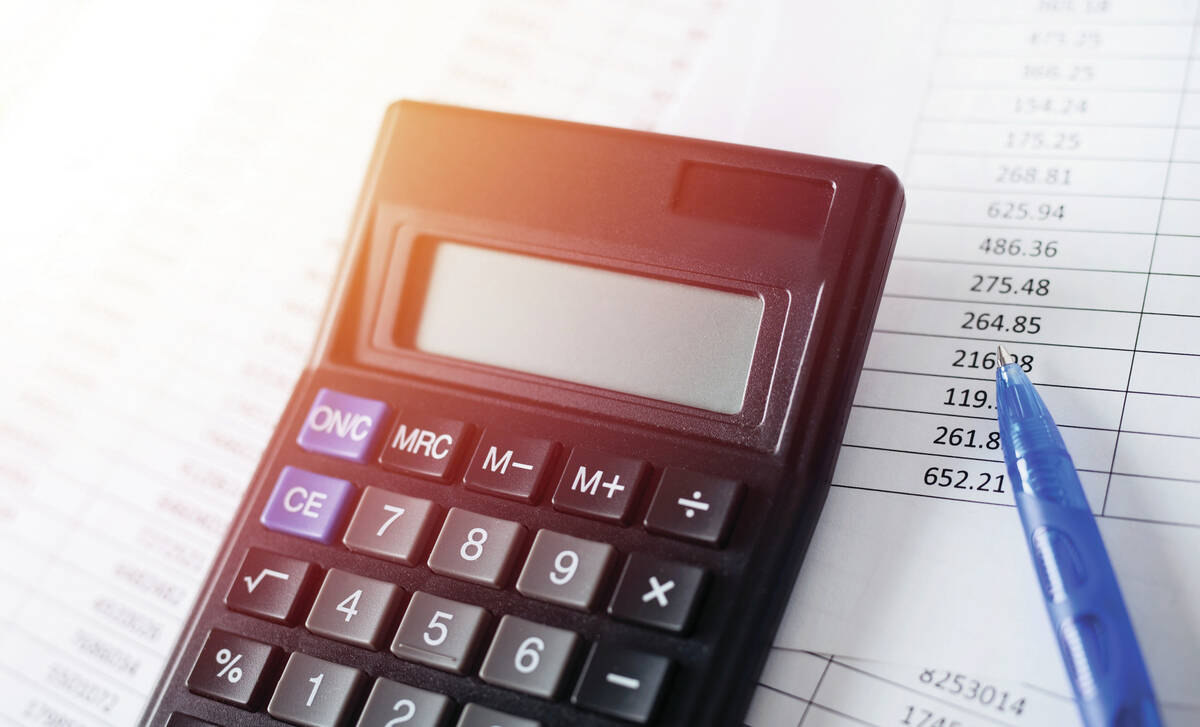When you’ve got equipment to move, follow these rules to sell it fast and generate the best net outcome for you and your farm
We all love that new-cab smell. As great as it feels to take a new farm machine home, however, one thing is inevitable. Some day you’ll have to figure out how to get rid of it. That raises the question, how and when should you sell equipment after you retire or cease farming operations?
It can be a tough challenge with lots of dollars riding on it, so the Western Canada Farm Progress Show lined up the experts last summer and put them on the hot seat.
Read Also

Five reasons why you avoid farm bookkeeping
Bookkeeping for the farm business might not be anyone’s favourite chore, but staying on top of it can help your farm access the funds it needs to grow.
“It’s a legitimate question,” agrees Dean Klippenstine, an agriculture specialist at MNP (formerly Meyers, Norris, Penny). Farmers are often reluctant to sell, he points out. There might be tax issues, and even if there aren’t, the tractor might come in handy some day, and who knows, maybe the children will change their minds and want to get more involved in the farm. If the next generation has to replace the equipment line, maybe they just couldn’t do it.
Besides, farmers need to make so many decisions just to get to the point of retirement, it looks awfully inviting to park the machinery decisions for another day.
First, though, you need to know the cost, Klippenstine says. “Machinery loses value.”
Holding on to that machinery even one year is probably going to reduce the amount of investment you can recoup from its sale. On average, says Klippenstine, expect to lose 15 per cent per year in obsolescence.
Lower taxes… really?
“If you’re retiring, retire and get rid of your equipment,” echoes Kenneth Gareau, a senior investment adviser at Dundee Wealth. “Don’t second-guess yourself.”
At first, it can seem obvious that your tax bill is going to be a lot easier to swallow if you can spread your equipment sales over multiple years. In reality, the tax professionals say, that isn’t always the case.
“Tax is never a reason not to have a wholesale farm liquidation,” Klippenstine says. “The tax is there next year anyway. That’s the key.”
The best way to sell
Gareau and Klippenstine agree that an auction sale may be the best way for most farmers to quickly and efficiently sell their machines. Many farmers, however, cringe at the fees charged by auction companies and think they could net more money by trying to sell their own equipment.
Klippenstine says his experience indicates things aren’t likely to work out that way.
“If clients try to do it themselves, they lose 15 per cent of their auction sale value,” Klippenstine estimates. “When we advertise it individually, it doesn’t all get sold and it takes four or five years. You’re not going to advertise every $2,000 or $4,000 item. No matter what happens, an auction is the right answer.”
Still, it’s critical to choose the right auction company. Make sure it has an Internet presence, Garneau says, since e-bidding greatly increases the pool of prospective buyers, feeding buyers from widespread locations into the process to help drive up prices.
E-bidding minimizes the impact from regional economic slumps, Garneau adds. “Just because the economy here isn’t great doesn’t mean the equipment is going to go cheap.”
Brennan LeBlanc of Ritchie Bros., the international auction firm, agrees Internet sales are key to getting the best value for machinery at auction, adding they now make up a significant part of that company’s sales. “I’d have to say that 25 to 35 per cent of items you sell at your auction go over the Internet,” LeBlanc says. “The logistics and technology today allow people to purchase items that are miles away.”
Nor is it only the faraway buyer who bids electronically. “We’re seeing an increase in the number of people using the Internet to buy even though their farm is right in the local area,” says LeBlanc. “It provides some privacy.
“You want to deal with a company that is trustworthy,” LeBlanc says. After all, you’re trusting them with a pretty large amount of money. But perhaps even more importantly, you need a company that the buyers will also trust.
If the buyers aren’t convinced the process is fair, they won’t be bidding, which helps explain why firms that have good reputations attract more buyers than those that don’t. Knowledge of an auction company’s reputation doesn’t seem to take long to become well known. A firm’s failure to attract trusting buyers is almost certainly going to result in a lower overall return from a sale.
That means that while it’s natural to focus on percentage points and sales fees, the reputation of the auction company, its area of expertise, what it is prepared to do and what resources it has to offer can make an even greater difference in the net result.
In sum, it’s a word to the wise to guard against selecting an auction company based solely on price when you could lose more in sales value than you would pay in fees.
If you’ve decided to sell equipment at an auction, Klippenstine believes starting the planning process as early as possible will help maximize the amount of money you get from it, as well as minimize tax problems. How far out should that planning start, from a financial perspective? “Three to five years before the sale,” Klippenstine says. “There’s not nearly as many tools in our (financial planning) tool kit for the short term as there are for the long term.”
LeBlanc agrees preplanning will make for a better sale. Although arranging the auction itself may not require as much lead time as tax planning, booking a company well ahead of time means you’ll have ample time to arrange everything. That includes picking a day for the sale. “A good practice is, the earlier the better,” says LeBlanc. “The time frame is very important. Going first makes sure you’re out in the market first and attracting buyers.”
Ample lead time also ensures you can properly prepare your equipment for a sale.
Even if you can’t spend time working on every machine, improving the condition of a few key pieces can provide a net benefit to the entire equipment line. “Tidying up one piece of equipment increases the attraction on all of the equipment,” LeBlanc says.
The derelict machines can be sold ahead of time to scrap metal dealers or neatly organized and included in the auction.
“There is a three-to-one rule,” says LeBlanc. “If you spend $1,000 to clean up a machine, we feel you’ll get $3,000 back for that effort.” CG















